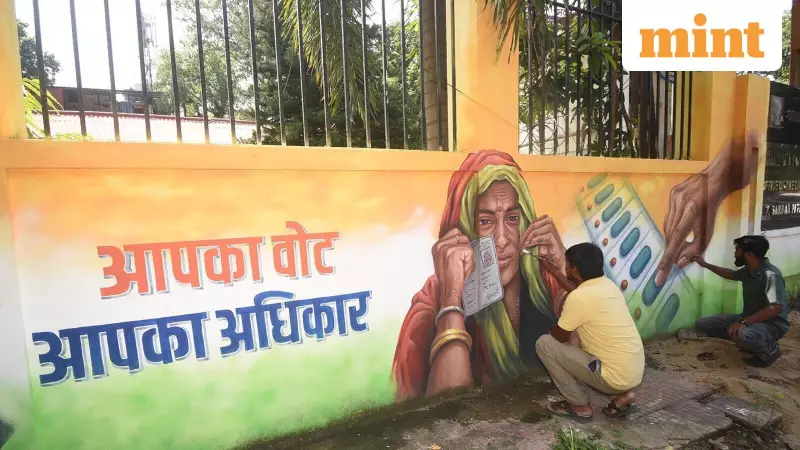
Bihar, India's poorest state by income, faces a critical test as political parties make extravagant cash promises ahead of the 2025 assembly elections. Despite the state's struggling economy and mass migration issues, election campaigns have centered around quick-fix solutions rather than addressing structural problems.
The Deluge of Election Promises
Political parties competing in Bihar's two-phase elections on November 6 and November 11 have unleashed an unprecedented wave of financial commitments. Beyond the now-standard cash transfers to women, parties have pledged free electricity, unemployment benefits for youth, and increased pensions for elderly citizens. The election results are expected on November 14.
The key alliances include the ruling National Democratic Alliance (NDA) led by Bharatiya Janata Party (BJP) and Janata Dal (United), and the opposition Mahagathbandhan led by Rashtriya Janata Dal (RJD) and Indian National Congress. This year also features a new contender—the Jan Suraaj Party founded by political strategist Prashant Kishore—making it a three-way contest.
Bihar's Precarious Economic Reality
Bihar's economic indicators paint a grim picture that contrasts sharply with the generous election promises. The state's per capita net state domestic product (NSDP) stands at just ₹69,320 per year at current prices—the lowest in India. While the state recorded growth between 8.6% and 12.8% from FY23 to FY25, bringing the compounded average annual growth rate since FY12 to 6.1%, this growth remains insufficient given Bihar's low economic base.
The state continues to witness mass migration for work, reflected in its highest dependency ratio of 66.3 (children and elderly per 100 people aged 15-64) and the lowest labor force participation rate of 29.1%. Government data from the e-Shram portal shows Bihar led the country in registrations, with 2.26 million new entries in the past year alone.
Financial Profligacy and Its Consequences
The election promises threaten to worsen Bihar's already fragile financial situation. The state has planned a capital outlay of about ₹40,000 crore, yet individual promises could cost between ₹600 crore and ₹30,000 crore annually each.
Bihar's fiscal situation has already been under significant pressure. The state budgeted a fiscal deficit target of 3% of GSDP in FY24 and FY25, but ended FY24 at 4.2% and FY25 at more than 9%. Despite missing these targets significantly, the FY26 budget still targeted 3%. According to Emkay Global, this has come on the back of extremely unrealistic revenue estimates.
The ruling party has already announced several freebies and subsidies ahead of the polls, which could cost up to 3.1% of GDP. Emkay Global noted in a recent study that Bihar takes the cake when it comes to fiscal volatility, with heavy subsidy announcements likely to worsen fiscal performance.
The Dangerous Trend in State Elections
The cash-transfer trend follows patterns observed in previous state elections, where failing to offer free electricity or direct transfers to women was seen as a political misstep. A Mint analysis ahead of the Delhi elections in February showed at least 13 states, across diverse political landscapes, had announced or implemented similar schemes, often just before elections.
Early trends suggest states are now seeking to curb costs after elections. An analysis by Emkay Global of 11 states that had announced cash transfers to women showed that six of them are now rationalizing their spending. Maharashtra has reportedly pruned the list of beneficiaries to cut costs after elections.
Professor Lekha Chakraborty of the National Institute of Public Finance and Policy emphasized that cash transfers are just a short-term tool while employment generation and infrastructural investment spending represent long-term solutions. With all parties, including the new Jan Suraaj Party, offering freebies, Bihar's finances are set to feel the strain, and as Emkay Global warned, it is difficult to cut welfare programs once they have started.





